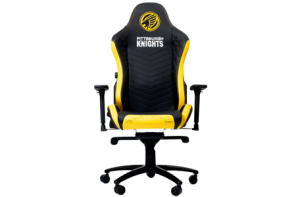
2018 League of Legends World Championship via Flickr
The 2018 League of Legends World Championships in South Korea were a historical occasion for the world of esports. Yes, China won their first ever championship title – but that’s not what everyone is talking about (ignore Twitter). Probably the most shocking, and also baffling, aspect of the finals? Korea – or, the lack thereof.
Shocking because Korea has been unrivaled in LoL for as long as anyone can remember. Having been the LoL world champions for the last 5 seasons, everyone assumed the pattern would continue – that several Korean teams would sweep through the brackets, and that one would push forward to take the championship. However, what we didn’t see coming, was Korea being wiped out in the first round of the quarter-finals, with NA, EU, and countries far “inferior” in League advancing past them. Although Korea has not always dominated every facet of esports, League has always been their game. Now, skeptics are starting to wonder if that is still the case, and if Korea has fallen from their throne.
Korea has always been as the world center for esports. This is because Koreans, from the time they are born, are immersed in esports. Their whole culture is intertwined with gaming and esports, while the average american or European may not even be exposed to esports until they are older. PC bangs, which are internet cafes where people come together and game for hours on end, are the national pastime. Paul Mozur, a technology writer for the New York Times, explains, “couples going to game clubs is about as common as couples going to the movies” This is what allows Koreans to have the edge on other countries. Basically, they train and practice their entire lives. Therefore, most of their country grows up at least somewhat skilled in gaming. This gives them a much larger talent pool to work with, and a higher baseline of skill. Basically, their culture actively encourages esports. While it is not dissuaded here in the U.S. or in other countries, we have nowhere near that kind of involvement in the average citizen’s everyday life. Esports is far more ingrained into their culture and daily lives than it ever will be for their competitors.

South Korean team Afreeca Freecs via Flickr
Additionally, Korea has a strong and constantly expanding esports infrastructure. KeSpa, or the “Korea e-Sports Association,” is a national governing body over the country’s esports ecosystem. KeSpa manages things that are often done independently, or not at all in other countries, such as planning competitive events, outlining professional player work conditions, and regulating esports broadcasting. Korea is focused on collective, national growth of esports as an integrated part of their culture. In other countries, there is the focus on individual and personal growth within the industry.
Now that we understand esports as a whole in Korea, let’s look at Korean LoL. Korea has won the LoL World Championships for the past 5 seasons, usually with a clean and dominating win in the finals. Additionally, there are usually another one or two Korean teams that fill out the rest of the top 4. In this year’s world finals, 3 teams represented Korea. However, their presence is much greater than most realize. While there were only 3 teams from Korea, 34 of the 131 players in the World Finals were Korean. The next highest country was Taiwan with 14. Yeah, I know. For those of you that are confused like I was, let me break it down.

Source: LoL Gamepedia
As the top country in the world for esports and LoL, Korean players are highly sought after. The best of the best in Korea will play for the top Korean teams. No matter how much other teams may dish out to try and steal them, it is nearly impossible to recruit from the top Korean teams. Why? Well, why would anyone leave one of the top teams in the top country in the world for their game? For them, it is not about the money. Korean players stay with their home country for the national pride, comfort of home, and for the legacy they will leave behind, both in South Korea, and in the world of esports. In fact, they will actually accept lower sums of money than they could earn just to have these comforts and benefits. However, if they are in it for the money, they win championships for Korea first and then go abroad. So, no matter what other countries could offer, nothing is worth it to them to leave the prestige and pride of representing the world’s best as one of the world’s best.
Now, there are other highly-skilled players in the country that are good, but are not good enough to be recruited to their teams of the best of best. Still, their “not good enough” far exceeds other countries’ most elite – and this is where it gets interesting. Other countries will sign these Korean players to their team so they can boost the team’s ability level to compete with the dominant Eastern teams. Even though they can’t play for Korean teams, they can earn fame and success, as well as the ability to live out their dreams, elsewhere. This became such a prevalent practice that rules actually had to be set in place in the LCS that prevented teams from having no more than two players from a country outside of the one they represent. So, naturally taking full advantage of the rule, most teams will have two foreign players. Then, once they have become a citizen of that country, another player can be filled in. So, while Korea lost the Championship title to China, 3 of the six players on the Chinese team are Korean.

Invictus Gaming’s win at the League of Legends World Championship via Flickr
So, with all of these natural advantages, how did the Koreans still lose? Simple – everyone has an off year. The Korean teams that everyone thought would make it, by some random chance of fate, didn’t. Although most of these championship brackets come down to skill, there is a small bit of luck that plays into it. The participants for the World Finals are chosen in three ways: Championship Points, the Summer Split playoffs, and the Gauntlet. Throughout those three modes of qualification, there was the issue of the Championship system limiting talented and historically high-performing teams, such as former world champions Gen. G. Specifically, the Championship Point system was specifically noted as faulty for limiting high-performing teams such as Griffin, who did not participate for half of the season and did not possess the points.
For those South Korean teams that did make it through to quarterfinals, Afreeca Freecs and and kT Rolster, I think they were also affected by that luck. When Afreeca Freecs went head to head with Cloud 9 in the first round of the quarterfinals, C9 had gotten to play far more matches. They were already well warmed up, practiced, and comfortable in the Championship arena, when Afreeca Freecs had not had that kind of preparation. It is also hard to compete with the best in the world when teams like kT Rolster shouldn’t have really been there. There are much stronger teams, such as Griffin or Gen. G, who were knocked out by the qualification system, but really would have best represented Korea. South Korea probably would have done better in the Championships, and maybe even have won, if they were represented by their strongest teams.
So, no, I don’t think Korea has completely been dethroned. I don’t think that China, EU, and NA are on par – but I do think they are getting closer. It may be five years, it may be fifteen years, but I do think that the rapid worldwide explosion of esports will elevate the caliber of players and teams across the world. China has the unique advantage of being on the highly coveted eastern solo queue with South Korea. Therefore, they can practice against the best in the world on a daily basis, an advantage the rest of the competition does not possess. This is a reason that China is far more advanced than the western countries, and a contributing factor to their Championship win.
I think that this win over Korea, although mostly luck, also speaks to the slow closing of that gap between South Korea and the rest of the world. Don’t get me wrong, it is still a massive and expansive gap, but even at a microscopic pace, it is closing. However, a tricky aspect to factor into that is the roster makeup. Even though Korea didn’t win, there were still 3 South Korean natives on the Chinese Champion team. So, is the rest of the world getting better, or is the talent of South Korea bleeding across the League Championship Series into the rest of the world? I guess only time will tell – but what we do know is that when the 2019 LoL World Championships comes around, Korea probably will do well once again. Maybe they will win against NA, EU, China, and the rest of the world. But they will not underestimate them.


